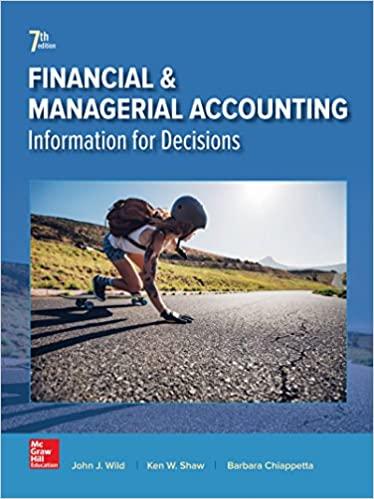Question
On January 1, 2020, when the fair value of its common shares was $ 75 per share, Crane Corp. issued $ 11 million of 9%
On January 1, 2020, when the fair value of its common shares was $ 75 per share, Crane Corp. issued $ 11 million of 9% convertible debentures due in 20 years. The conversion option allowed the holder of each $ 1,000 bond to convert the bond into 4 common shares. The debentures were issued for $ 11.5 million. The bond payments present value at the time of issuance was $ 9.1 million and the corporation believes the difference between the present value and the amount paid is attributable to the conversion feature. On January 1, 2021, the corporations common shares were split 2 for 1, and the conversion rate for the bonds was adjusted accordingly. On January 1, 2022, when the fair value of the corporations common shares was $ 129 per share, holders of 30% of the convertible debentures exercised their conversion option. Crane Corp. applies ASPE, and uses the straight-line method for amortizing any bond discounts or premiums.
1. Prepare the entry to record the original issuance of the convertible debentures.
2. Using the book value method, prepare the entry to record the exercise of the conversion option.
3. How many shares were issued as a result of the conversion?
4. Assume, instead, that Crane Corp. decides to retire the bonds early, on January 1, 2022, by paying cash of $ 3,611,000 to the bondholders. On that date, the fair value of a similar bond without the conversion feature is $ 870 per bond. Prepare the journal entry using the book value method.
Step by Step Solution
There are 3 Steps involved in it
Step: 1

Get Instant Access to Expert-Tailored Solutions
See step-by-step solutions with expert insights and AI powered tools for academic success
Step: 2

Step: 3

Ace Your Homework with AI
Get the answers you need in no time with our AI-driven, step-by-step assistance
Get Started


